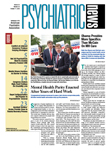As the pressure mounts on the medical profession to distance itself from the pharmaceutical industry, both the industry and medicine are trying to answer allegations of a relationship so close that conflicts of interest are common.
In recent years the perceptions of lawmakers, the media, and the public have turned increasingly negative toward the industry's relationship with and influence on medical practice.
The Pharmaceutical Research and Manufacturers of America (PhRMA), which represents the major pharmaceutical companies in the United States, issued a new set of guidelines in July, known as the “Code on Relationships with U.S. Healthcare Professionals.”
Beginning next year, sales representatives can no longer provide entertainment and recreation, such as tickets to shows and sports events and vacation trips, to health care professionals. Sales reps will also stop handing out pens, notepads, mugs with company logos, or other items considered unrelated to education.
The new code does not prohibit company sales reps from buying lunches for medical students and faculty or providing education-related gifts such as textbooks and anatomical models. Nor does it restrict industry funding for continuing medical education (CME), another area of controversy. Pfizer recently announced that it would stop funding CME programs created by for-profit education companies, which is a more stringent policy than the code requires (Psychiatric News, August 1).
And in an issue with perhaps a more direct impact on patient care, the code does not prohibit or discourage companies from hiring practicing health care professionals, especially those who serve on institutional committees and make purchasing decisions, as speakers/consultants for promoting their products, as long as these professionals disclose their industry-relationship to the committees.
Restrictions Could Spread
Although the PhRMA code is not legally binding, larger drug companies generally adopt it as part of their internal policies, which may in turn be used as models by other drug companies.
The Biotechnology Industry Organization, the industry trade organization for biopharmaceutical companies such as Amgen and Genentech, has announced its support for the PhRMA code.
Also responding to increasing criticism about too close a relationship with industry, the medical community is debating whether the profession's self-governance needs adjustment to protect, or perhaps reclaim, the profession's reputation for integrity. Two guidelines on conflict-of-interest policies, one released by the American Board of Internal Medicine Foundation and the Institute on Medicine as a Profession (IMAP) in 2006 and the other by the Association of American Medical Colleges last April, are available. Both recommend against physicians' accepting any kind of gifts, including meals, from industry.
Med Schools Consider Stringent Policy
A number of medical schools and affiliated institutions have implemented conflict-of-interest policies to regulate faculty relationships with industry. Some, including Yale and Vanderbilt universities, have banned gifts and free meals from industry.
Stanford University's medical school recently announced that effective September 1, it would no longer accept topic-specific educational grants from companies to fund its internal CME. The school does allow commercial funding for CME if the money goes toward education within such broad areas as medical, pediatric, or surgical specialties, diagnostic and imaging technologies, or health policy. The sponsor cannot be linked to specific CME topics or content.
In September the IMAP made a searchable database available on its Web site that posts the conflict-of-interest policies at the 125 U.S. academic medical centers it surveyed. The database allows the public to search and compare the policies of medical schools in areas such as accepting gifts and meals, accepting funding for CME, consulting and speaking for drug companies, ghostwriting of scientific articles, and allowing access by vendors and sales reps. Institutions with no current policies on this issue are also listed. In a September 10 IMAP announcement, such prestigious institutions as Brown, Johns Hopkins, Harvard, and Tufts universities, among others, were cited as lacking or having weak conflict-of-interest policies.
“We will periodically check the policies with the schools and update the database,” Lisa Patterson, IMAP program coordinator, told Psychiatric News. The database does not include osteopathic schools.
The IMAP database is supported by funding from the Pew Charitable Trust and a grant from the Attorney General Consumer and Prescriber Grant Program.
Despite efforts by industry and medicine to self-regulate, lawmakers are putting pressure on both sides to change the way business is conducted.
Federal legislation, known as the Physician Payments Sunshine Act, has been proposed by Sens. Charles Grassley (R-Iowa) and Herb Kohl (D-Wis.) that would require and standardize disclosure of industry gifts to physicians. It would mandate that large pharmaceutical, biological, and medical-device companies report data on physicians to whom they have provided gifts valued above $25 (not including research funding or drug samples), and this information would be made publicly available.
Massachusetts recently enacted legislation that requires pharmaceutical and device companies to publicly disclose all gifts to physicians with a value above $50 and bans certain types of gifts such as sports tickets and free travel, as also recommended in the PhRMA code. This legislation had been fiercely opposed by business organizations, including the Biotechnology Industry Organization, which argue that such laws could drive biotechnology companies from the state, according to a report in the August 8 Boston Globe. Nevertheless, Governor Deval Patrick (D) signed it into law on August 10.
IMAP's Conflict of Interest Policy Database is posted at<www.imapny.org/coi_database>. The PhRMA code is posted at<www.phrma.org/files/PhRMA%20Marketing%20Code%202008.pdf>.▪
